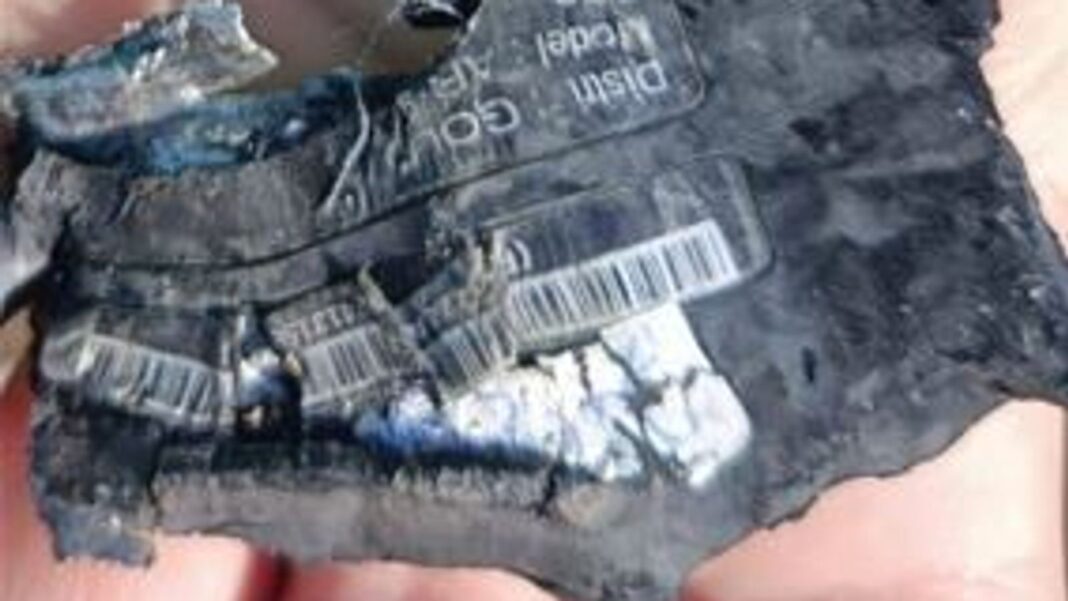Sky News’ Data and Forensics team has spoken to four experts to answer the question – how does a pager or hand-held radio explode?
The pagers that exploded in Lebanon yesterday are consistent with the AR-924 model of pager with Gold Apollo branding – a Taiwan-based company.
The firm’s founder Hsu Ching-Kuang says the devices were actually made under licence in Budapest by a firm called BAC Consulting, using the Gold Apollo name.
CEO of BAC Consulting, Cristiana Barsony-Arcidiacono, told NBC News, Sky News’ US partner: “I don’t make the pagers. I am just the intermediate. I think you got it wrong.”
Read more: The Budapest firm linked to explosive pagers
So while it might not be clear at what stage the pagers could have been turned into bombs, experts can say how it might have been done.
First, let’s look at the explosive – you only need a very small amount, a gram or two is enough to “explode someone’s arm or face”, says Dr Eyal Pinko, a former Israeli navy and intelligence operative.
It is not yet clear exactly what type of explosive was used. There have been unverified reports pentaerythritol tetranitrate, or PETN, was used. Experts told Sky News it also could have been TNT or another equivalent.
“The point is that you can mix them in with another component effectively to make a plastic explosive,” Andrea Sella, professor of chemistry at University College London, says.
“So that means that you could conceivably insert some of this stuff into the nooks and crannies [of a pager].”
Gold Apollo pager
The explosives could have been in the battery, inside a detonating device or hidden elsewhere in the pager, Dr Pinko says.
Middle East latest: Israel declares ‘new phase’ of war after second wave of blasts
Exactly how and when the explosives were hidden in the pager are questions that remain to be answered.
But once the explosives are in the pager, how can it be remotely detonated?
Please use Chrome browser for a more accessible video player

1:07
Lebanon explosions: What happened?
The other thing that will likely have been added to the pager is a detonator, says Carl Robson, who used to be a British army bomb disposal operator and is now a bomb disposal project manager for Igne UXO.
A detonator is a “small cylindrical barrel” which, even without any added explosives, would easily cause injury once initiated, Mr Robson says.
To initiate the detonator, you need a power source. In this case, that is the battery for the pager
But how does the battery set off the detonator?
You need a trigger – Mr Robson compares it to a light switch, and in this case the flick of a switch is a particular message being sent to the pager.
Please use Chrome browser for a more accessible video player

0:19
Hand-held radio exploded ‘because of battery’
This message, which could have been a specific string of letters or symbols, is identified and “starts creating the explosive chain”, Dr Pinko explains.
“Which means that it takes a current from the battery, heating the explosive to the level of energy which is needed. And then [the explosion] occurs.
“You only need a fraction of a second [of heating] to get this kind of explosion,” he adds.
Sean Moorhouse, a former British Army officer and explosive ordnance disposal expert, puts it another way: “Normally the pager beeps when you [get a message]. What they’ve done is they said, ‘OK, instead of beeping, send the charge that normally goes to the beeper to the detonator instead’.”
Please use Chrome browser for a more accessible video player

0:41
Apparent explosion at Lebanon market
But he says there’s still a question mark over how the pager was programmed to react to the message.
Read more:
Pagers modified by Israel ‘at production level’
How Israel is suspected of using technology against its enemies
Mr Robson says the functions of the two-way radios which exploded in Lebanon on Wednesday could have been manipulated in a similar way to remotely detonate.
“What is common in both the pager and radios is that they were being carried for their intended use and functionality and at some stage were initiated.

Keep up with all the latest news from the UK and around the world by following Sky News
“This would indicate to me that the explosive content and indeed required circuitry was wired to the device with a certain function as the trigger.”
Like the message to the pagers, a direct call to the radios may have been the trigger – or “light switch”.
But timers or alarms also cannot be ruled out as potential triggers, he says. Whatever the trigger, it would have worked the same way in drawing power from the battery and initiating explosives.







